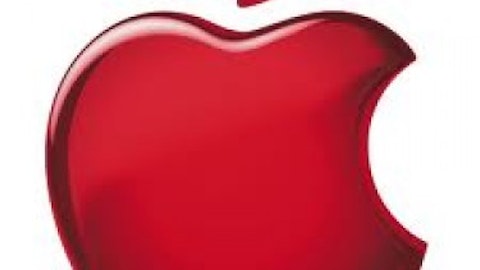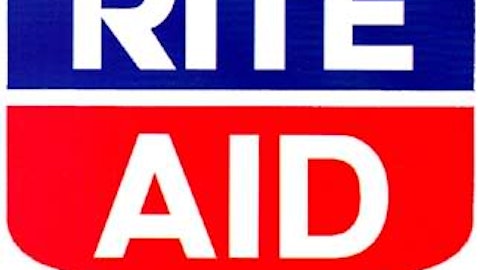Second, Apple Inc. (NASDAQ:AAPL) is reportedly offering record companies a 10% cut of ad revenue generated by the app – twice the payment offered by Pandora Media Inc (NYSE:P). Although iAd is still in its infancy, it could evolve into a major source of revenue farther down the road for both Apple and the record labels. iRadio also reportedly has some additional features, such as rewinding a song and one-click iTunes purchases, which Pandora completely lacks.
Thanks to this lucrative package, Vivendi‘s Universal Music and Access Industries’ Warner Music Group have now inked deals with Apple. Universal Music has granted Apple its recorded music rights but not its publishing rights, while Warner Music Group has granted both.
A radio app fully integrated into iTunes is a harrowing thought for Pandora Media Inc (NYSE:P). iTunes has approximately 500 million users compared to Pandora’s 70 million. However, Apple Inc. (NASDAQ:AAPL) needs one more major record label – Sony – to successfully launch iRadio. Sony and Apple are reportedly still at odds regarding the future of streaming content.
At this rate, Apple Inc. (NASDAQ:AAPL)’s iRadio could actually arrive at the same time as Google’s streaming radio product, which is scheduled for a summer launch. Google Inc (NASDAQ:GOOG) intends to finally transform its YouTube video streaming service into an audio one as well, and has already inked deals with Universal Music, Time Warner and Sony. Although not much is known regarding its streaming royalty rates, Google is likely to be able to net rates in line with Pandora Media Inc (NYSE:P) and Apple. However, if Google Inc (NASDAQ:GOOG) really plays its advertising card right, then it could get an even lower rate if it guarantees higher ad revenues via its Android app.
Google’s streaming radio, which would merge with YouTube and Google Play Music, has similar strengths as Apple Inc. (NASDAQ:AAPL)’s iRadio – by building new services on top of a massive existing user base. With YouTube apps available on all major mobile platforms, the addition of streaming music could immediately generate an active user base much larger than Pandora Media Inc (NYSE:P) and Spotify combined.
According to Google, YouTube has over a billion unique users per month, with 70% of its traffic originating from outside the United States. Moreover, 64% of teens surveyed in Nielsen’s Music 360 report stated that they listen to music through YouTube rather than other sources. These factors indicate high growth potential for Google’s Internet radio service.
When push comes to shove in the Internet radio business, I don’t want to be a Pandora shareholder. Both Apple and Google Inc (NASDAQ:GOOG) have massive active user bases with the means to permanently silence Pandora and Spotify. In the future, record labels are more likely to accept lower royalty payments from Apple Inc. (NASDAQ:AAPL) and Google, which can generate stronger ad revenue than Pandora or Spotify. Meanwhile, Pandora Media Inc (NYSE:P) and Spotify will be stuck paying higher rates that will keep their businesses unprofitable, despite constant revenue growth.
It will be very difficult for these smaller companies to escape this negative feedback loop, which could ultimately bury them. I believe that the only way for Pandora and Spotify to avoid this fate is to be acquired by a tech giant such as Microsoft or Yahoo. With that kind of backing, these two companies could have considerably more clout against record companies. Until then, however, the future does not look bright for stand-alone Internet radio companies such as Pandora Media Inc (NYSE:P) or Spotify.
Leo Sun owns shares of Apple. The Motley Fool recommends Apple and Google Inc (NASDAQ:GOOG). The Motley Fool owns shares of Apple and Google.
The article Pandora Flees From the iMonster and YouTunes originally appeared on Fool.com.
Leo is a member of The Motley Fool Blog Network — entries represent the personal opinion of the blogger and are not formally edited.
Copyright © 1995 – 2013 The Motley Fool, LLC. All rights reserved. The Motley Fool has a disclosure policy.





